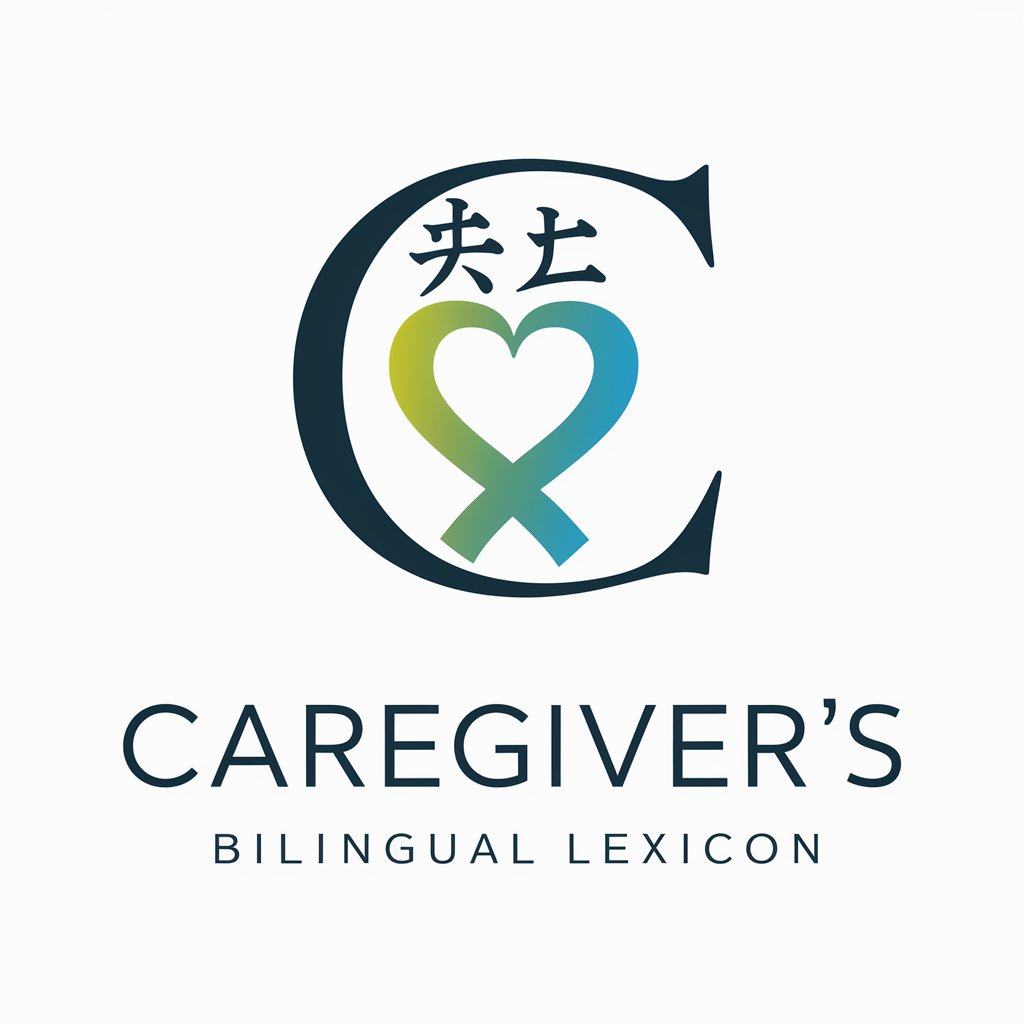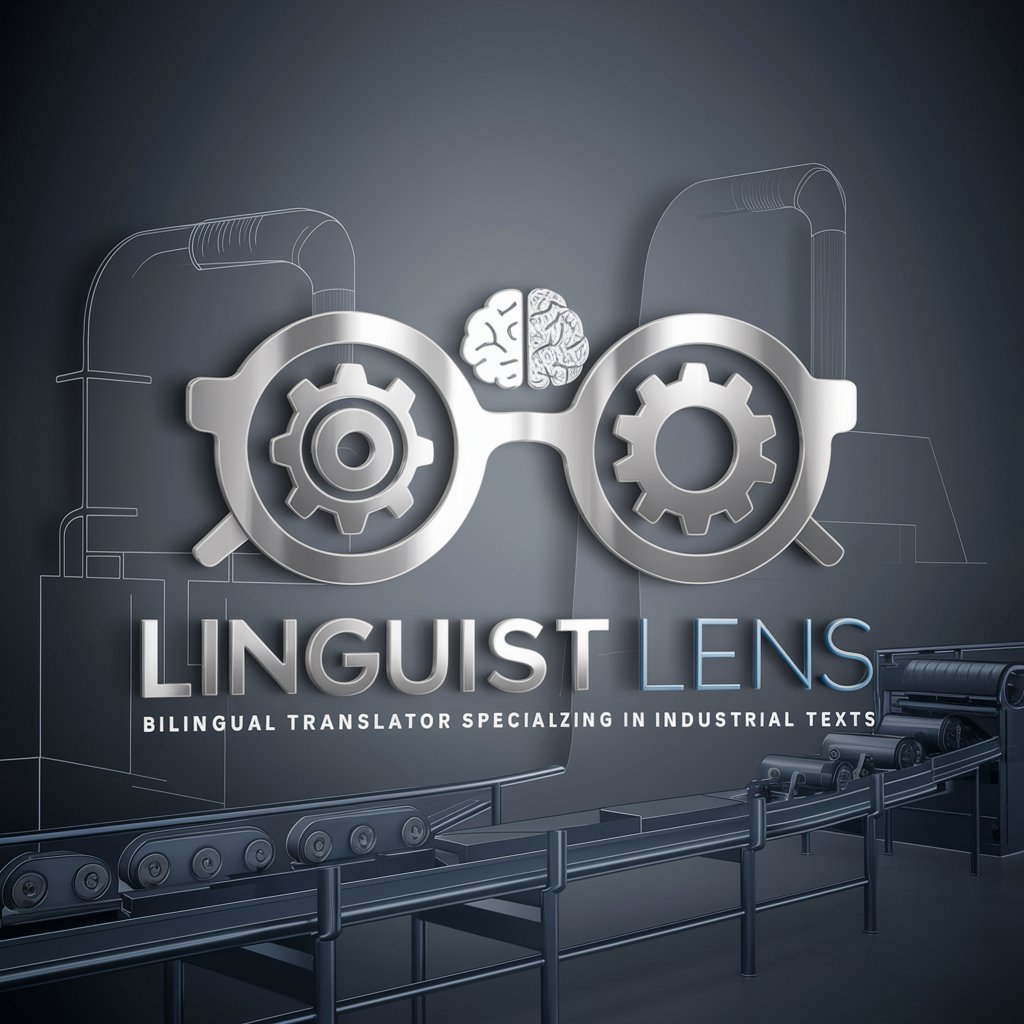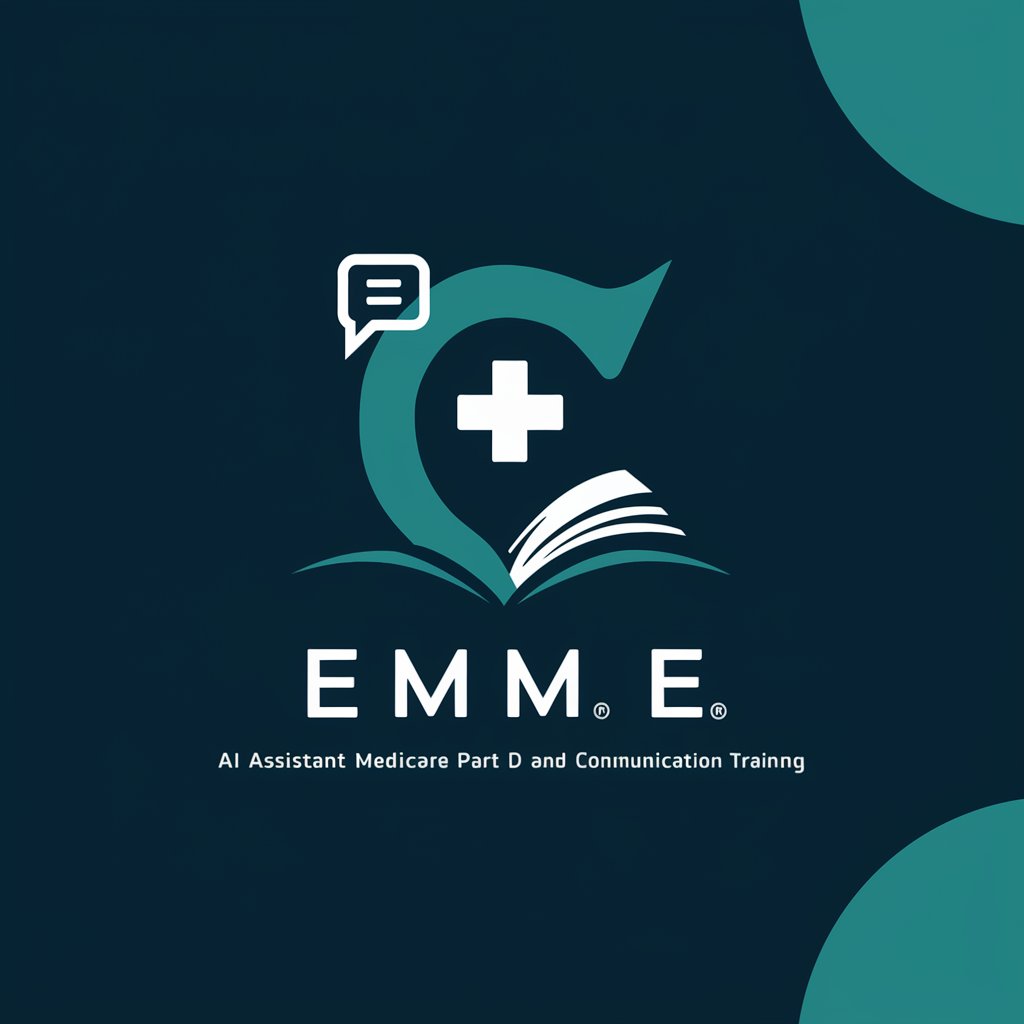Caregiver's Bilingual Lexicon - Bilingual Caregiving Resource

Welcome to Caregiver's Bilingual Lexicon, your professional guide to caregiving terminology.
Empowering Care through AI-Driven Language Support
Translate the Japanese term '介護' to English and provide a detailed explanation.
What is the English equivalent of the caregiving term 'リハビリテーション'?
Explain the meaning of the term 'elderly care' in Japanese, including its usage and context.
Provide the Japanese translation for the English term 'palliative care' along with its reading and contextual examples.
Get Embed Code
Introduction to Caregiver's Bilingual Lexicon
Caregiver's Bilingual Lexicon is a specialized, comprehensive dictionary designed to facilitate communication and understanding in caregiving contexts across Japanese and English languages. It aims to bridge the language gap for caregivers, professionals, and families involved in caregiving, by providing translations, readings, and detailed explanations of terms and concepts. This tool is invaluable for ensuring accurate, respectful, and effective communication. For instance, translating the term '介護保険' (kaigo hoken) not only involves providing its English equivalent 'long-term care insurance', but also explaining the system's relevance and application within Japan's social welfare framework, including eligibility, services covered, and its importance in supporting the elderly and disabled. Powered by ChatGPT-4o。

Main Functions of Caregiver's Bilingual Lexicon
Translation of caregiving terms
Example
Translating '認知症' (ninchi shou) as 'dementia', while also detailing its types, stages, and management strategies to ensure comprehensive understanding.
Scenario
Used by healthcare professionals during family meetings to explain a diagnosis in both languages, ensuring all parties fully understand the condition and care plan.
Providing cultural context
Example
Explaining the concept of 'おむつ' (omutsu - diapers) in the context of adult care, including the cultural sensitivity and preferences for certain types in Japan versus those common in English-speaking countries.
Scenario
Assisting caregivers from different cultural backgrounds in selecting the appropriate care supplies for elderly patients, while respecting their dignity and comfort preferences.
Offering detailed explanations
Example
Elaborating on '終末期ケア' (shuumatsuki kea - end-of-life care), including ethical considerations, palliative care options, and family support systems in both Japan and English-speaking countries.
Scenario
Enabling a deeper understanding for healthcare providers working in international settings or with multicultural families, ensuring sensitive and informed care planning.
Ideal Users of Caregiver's Bilingual Lexicon
Healthcare Professionals
Doctors, nurses, and social workers who provide care to Japanese-speaking patients in English-speaking countries or vice versa. They benefit from accurate translations and cultural insights to improve communication with patients and families, tailor care plans, and navigate the healthcare system effectively.
Family Caregivers
Individuals caring for family members who speak a different language. Access to bilingual caregiving terminology helps them understand medical conditions, treatments, and navigate healthcare services, enhancing the care provided to their loved ones.
Caregiving Educators and Students
Educators teaching caregiving courses in bilingual settings and students pursuing careers in healthcare can use the lexicon for academic and practical learning, ensuring they are well-prepared to serve diverse populations.

Guidelines for Using Caregiver's Bilingual Lexicon
Access the Tool
Initiate your caregiving language journey by navigating to yeschat.ai to explore the Caregiver's Bilingual Lexicon. Enjoy a complimentary trial with no requirement for signing in or subscribing to ChatGPT Plus.
Select Language Preference
Choose your preferred language setting (Japanese or English) to ensure that the interface aligns with your comfort level and enhances your learning experience.
Search for Terms
Utilize the search feature to find specific caregiving terms. You can enter terms in either Japanese or English, and the lexicon will provide translations, readings, and comprehensive explanations.
Explore Contextual Examples
For a deeper understanding, review the contextual examples provided with each term. These examples illustrate how terms are used in real-life caregiving situations, bridging the gap between theoretical knowledge and practical application.
Utilize Regularly
Incorporate the lexicon into your daily caregiving practice. Regular usage will enhance your vocabulary, improve communication with care recipients, and support professional development in a bilingual caregiving environment.
Try other advanced and practical GPTs
Academic Translator
Translating academic brilliance, powered by AI

Trans
Precision in Industrial Language Translation

Fitness Niche Navigator
Empower Your Fitness Coaching with AI

Text Improver
Elevate Your Text with AI-Powered Improvements

Design Thinking
Empower Creativity with AI-Driven Design

Bilingual Buddy
AI-Powered Language Learning at Your Fingertips

English Tutor
Empower your English with AI

Feedback Artisan
Empowering teams with AI-driven feedback

Emme
Empowering Medicare and Communication Mastery

SeaTable Helferlein
Crafting SEO-Optimized Titles with AI

Translator and Promoter for Online Courses AA
Elevate and amplify your online courses

SEO Helferlein
Elevate Your SEO Game with AI-Powered Insights

Frequently Asked Questions about Caregiver's Bilingual Lexicon
What types of terms can I find in the Caregiver's Bilingual Lexicon?
The lexicon encompasses a wide range of caregiving terms, including medical conditions, caregiving procedures, equipment, legal terms, and ethical considerations relevant to caregiving in Japan. It serves as a comprehensive resource for caregivers seeking to navigate the complexities of caregiving terminology across languages.
Can I use this lexicon without prior knowledge of Japanese or English?
Yes, the lexicon is designed to be accessible to users with varying levels of language proficiency. With translations, phonetic readings, and detailed explanations, it facilitates learning and communication across language barriers.
How often is the Caregiver's Bilingual Lexicon updated?
The lexicon is regularly updated to reflect changes in caregiving practices, terminology, and regulations. This ensures that users have access to the most current and relevant information.
Is the Caregiver's Bilingual Lexicon suitable for academic research?
Absolutely. With its comprehensive coverage of caregiving terminology and practices, the lexicon is an invaluable resource for students, educators, and researchers in the field of healthcare and caregiving.
How can I contribute to or suggest edits for the Caregiver's Bilingual Lexicon?
Users are encouraged to provide feedback and suggest edits through the contact form available on the website. This collaborative approach helps ensure the accuracy and relevance of the content.
